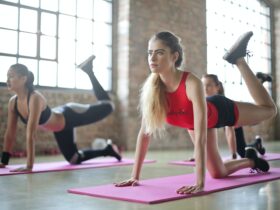It’s not a topic that usually comes up in conversation, but most women will experience some kind of bladder problem at some point in their lives.
Here are some tips for avoiding the most common bladder problems:
- Don’t hold it. Running to the bathroom isn’t always convenient, but holding your urine for long periods can irritate your bladder. If you wait too long to urinate, the muscles controlling your bladder can lose their tone and strength, which could make you more prone to infection.
- Stay hydrated. Drinking plenty of water and other fluids — especially cranberry juice — will help flush out bacteria and prevent infections (especially if you’re prone to them). There’s no magic number for how much fluid you should be drinking each day (every person is different), but it’s best to stay away from alcohol and caffeinated beverages, which can irritate your bladder and increase the frequency of bathroom breaks.
- Limit fluids before bedtime: Drinking before bedtime can lead to nighttime urination — which may cause sleep disruptions and excessive daytime sleepiness. Limit fluids two hours before bedtime, but don’t restrict fluids during the day. If you’re thirsty, drink!
- Lose weight if you’re overweight. Extra pounds put more pressure on your bladder and weaken your pelvic floor muscles. This is especially true if you carry extra weight around your middle.
- Strengthen the muscles that help control urination. Kegel exercises — contracting and relaxing the muscles used to stop urine flow — can improve bladder control for some people.
- Avoid foods that irritate your bladder. There are a few foods that can irritate the bladder and make leaks worse. For example, coffee has been shown to increase frequency and urgency in people with overactive bladders. Alcoholic drinks can have a similar effect as well. Foods high in sodium can also cause bloating and swelling for some people.























Leave a Reply